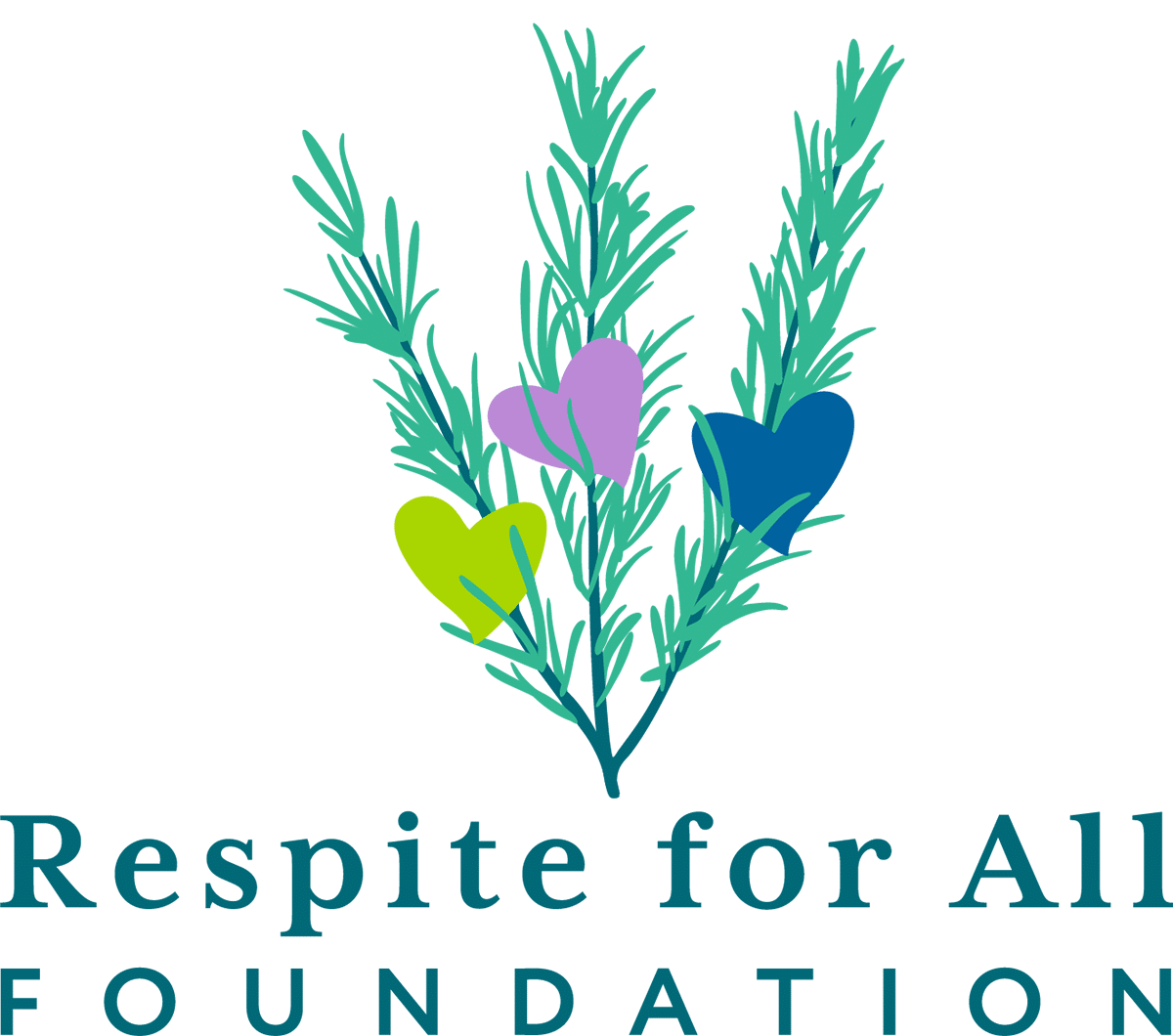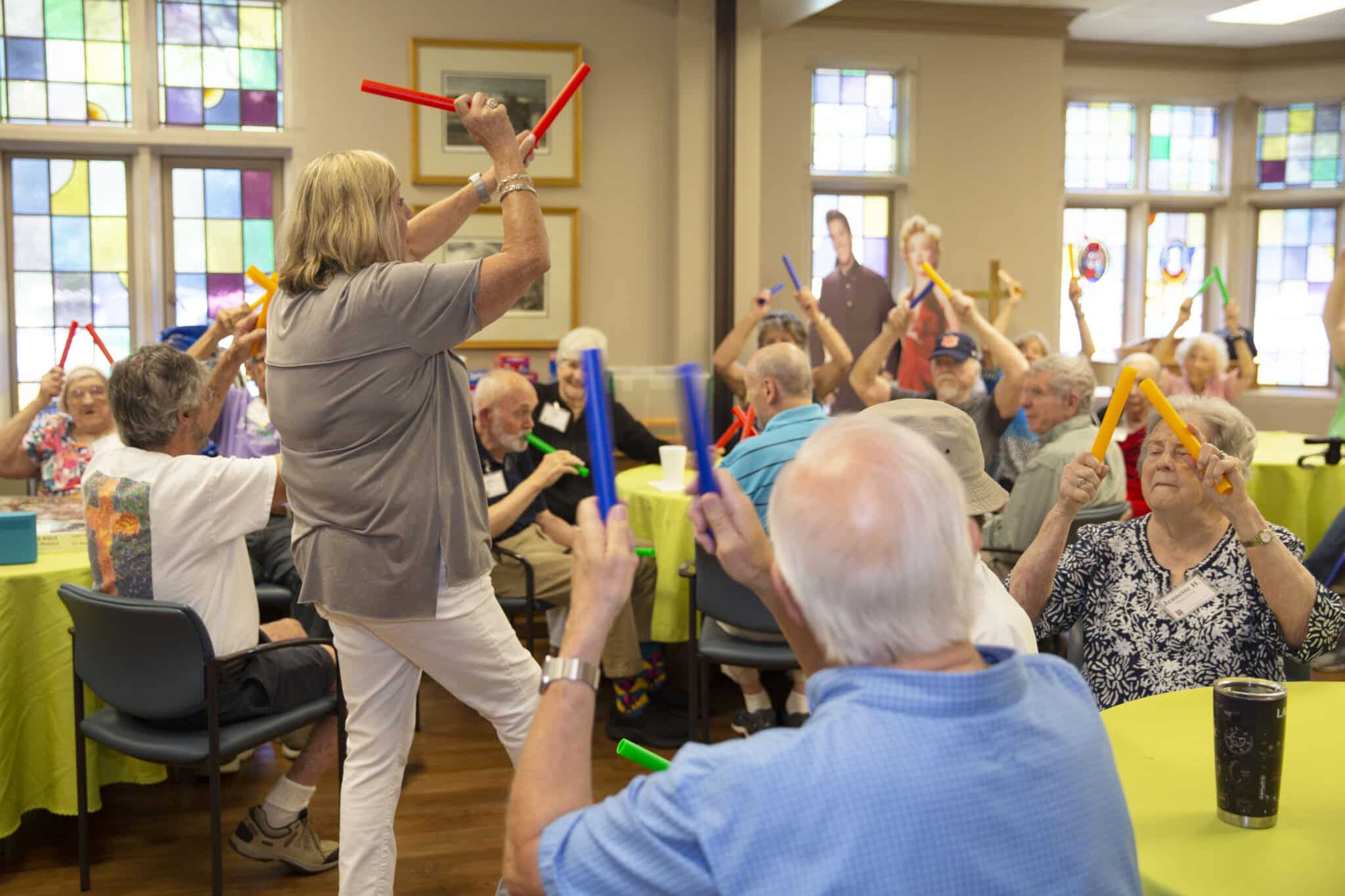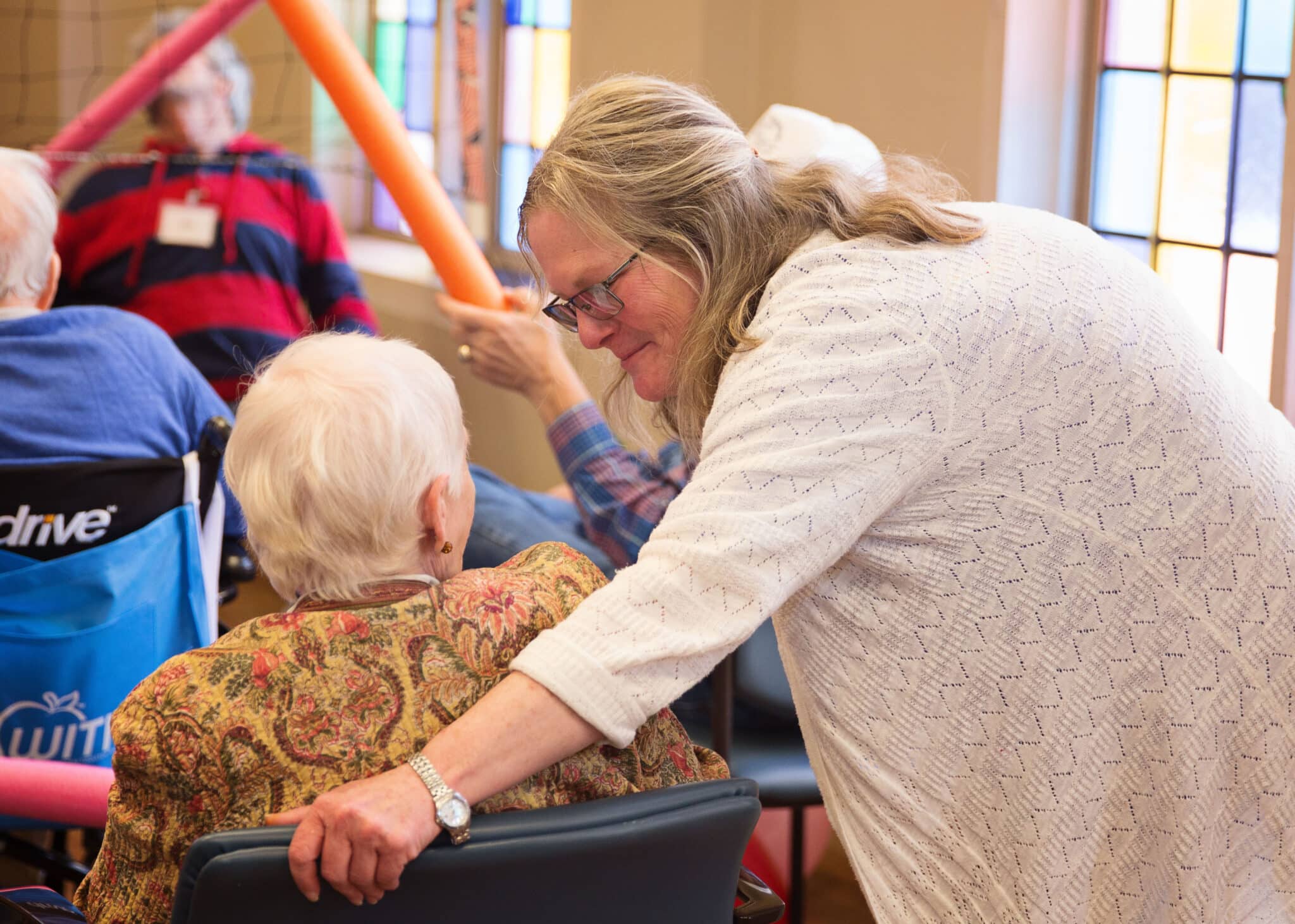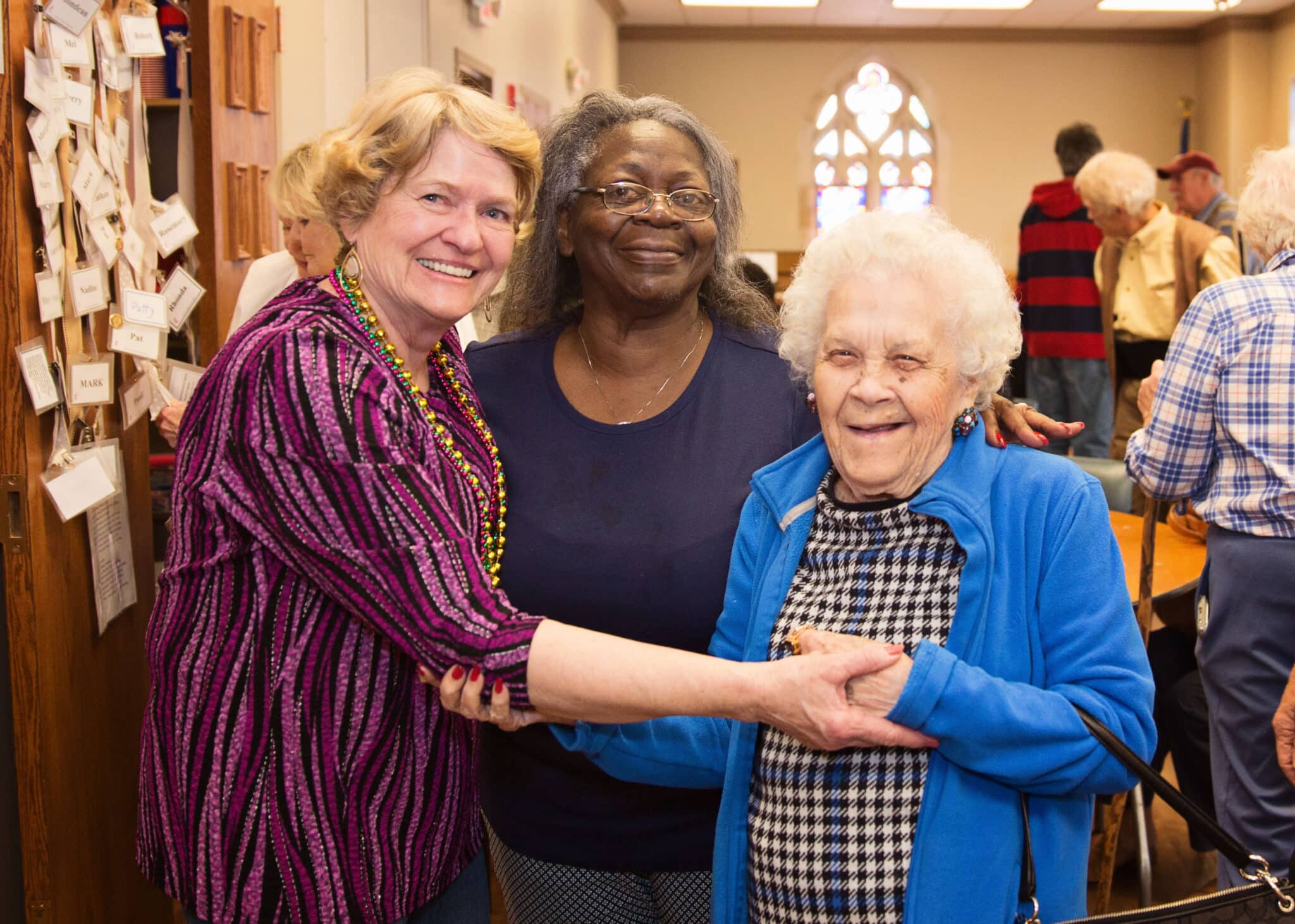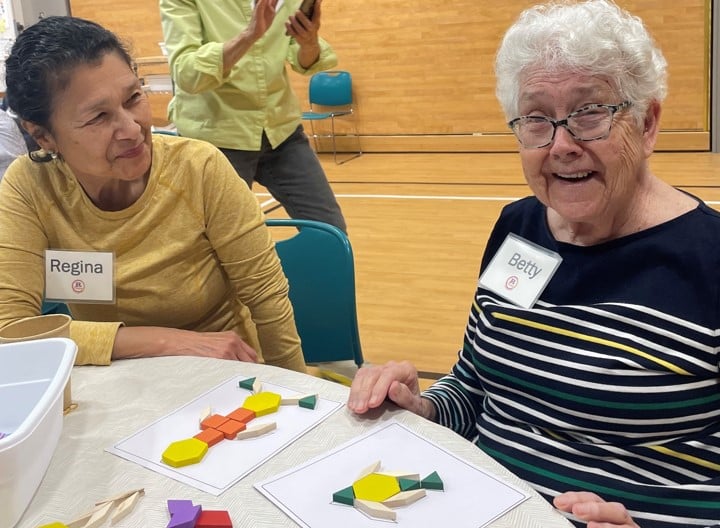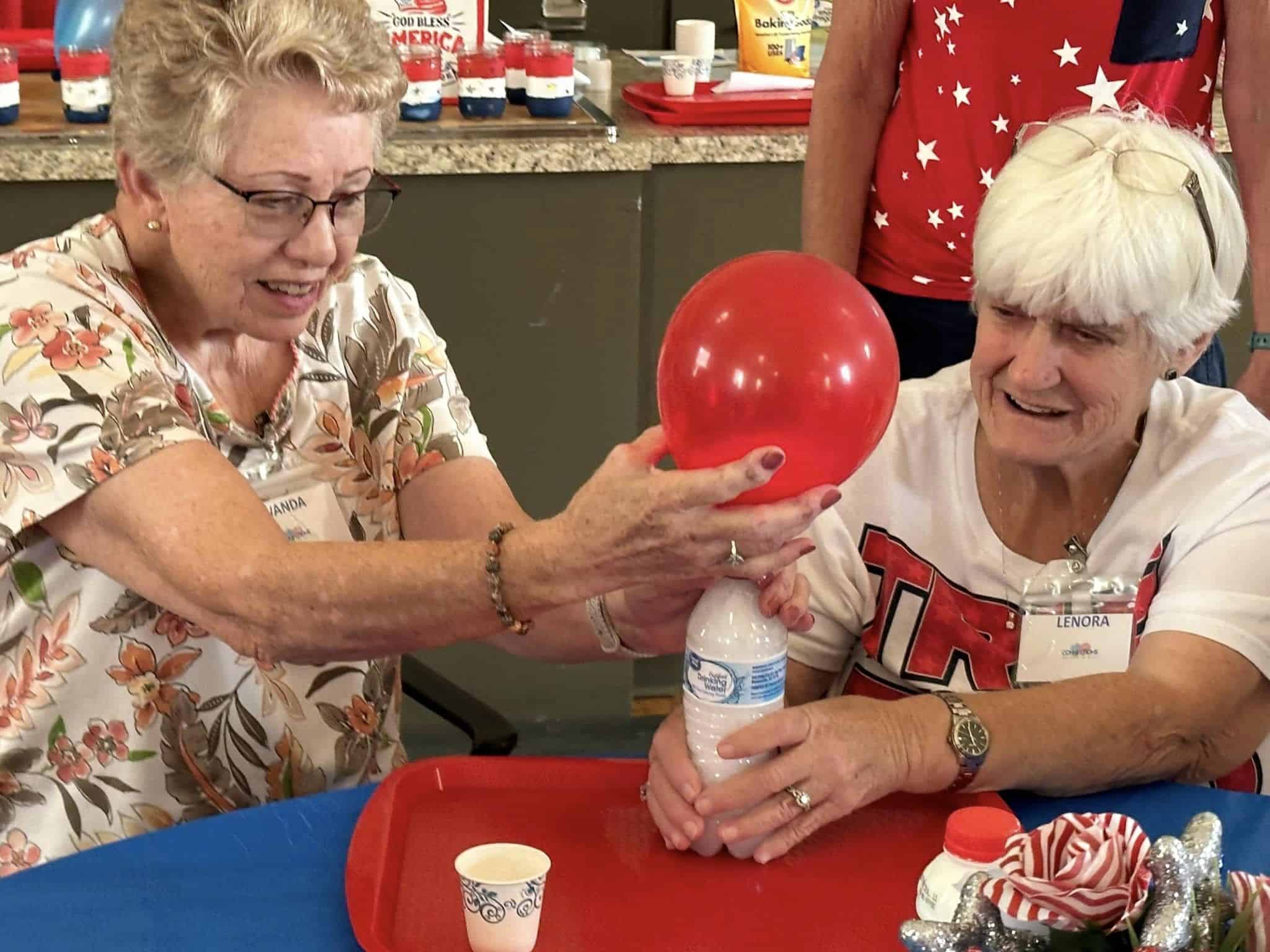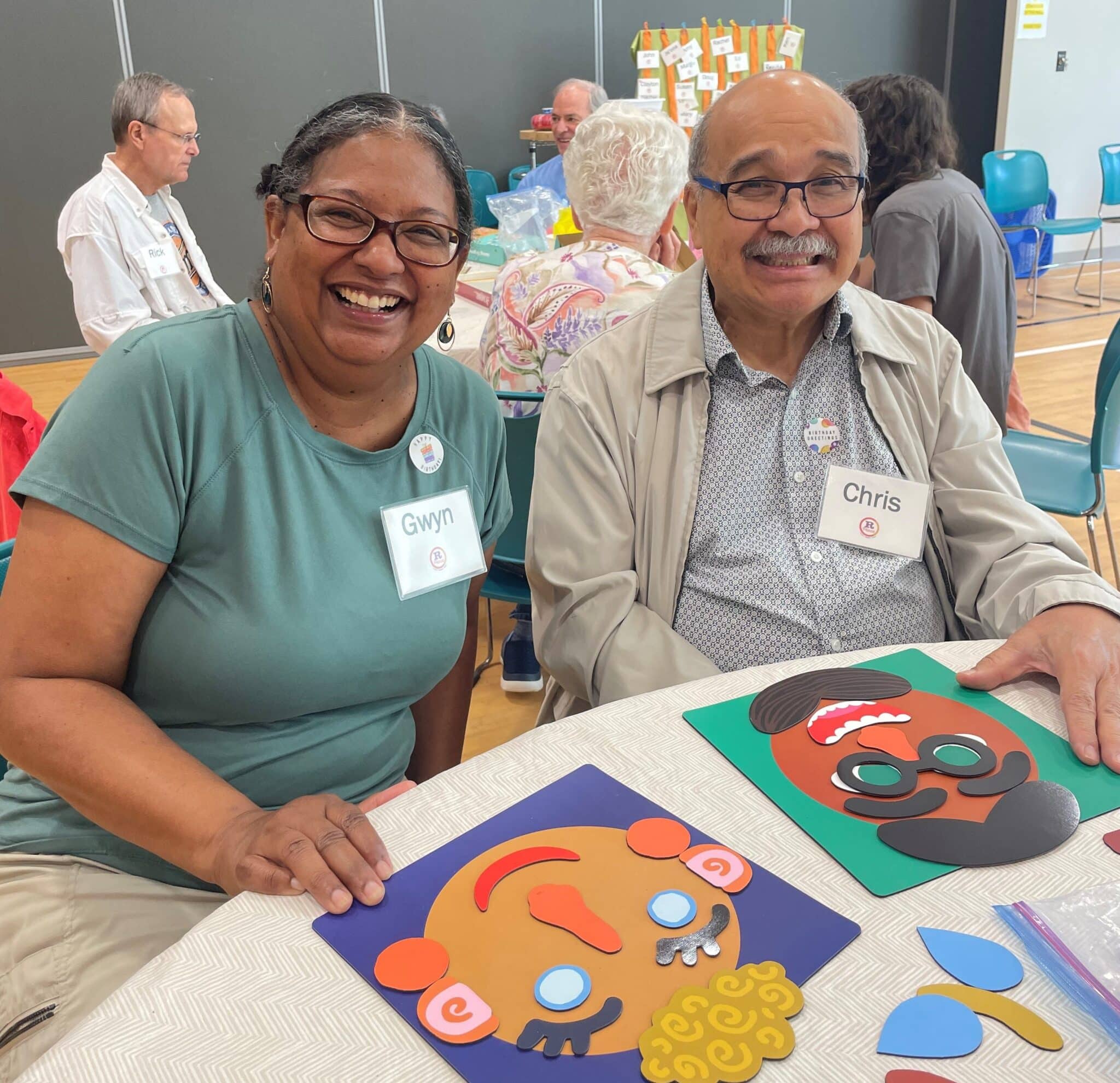The RFA Model
The Need to Reclaim Joy
The Respite for All Model
Are you ready to begin building a Respite Ministry in your community? We provide the training and support to create a sustainable program. Email [email protected], and she’ll guide you through next steps.
Frequently Asked Questions
Do you have questions about the RFA Model? Below are answers to some of the most common questions we are asked. But, if we missed something, please don’t hesitate to get in touch. You can send your message to our Executive Director, Daphne Johnston, by emailing [email protected]. Thank you!
How Do the Finances Work in the Respite for All Model?
Typically, tuition is paid at the end of every month based on the number of days participants attend, and sliding scales or financials aren’t necessary to receive scholarship assistance. The Respite for All Foundation recommends that no one be turned away for financial reasons. Approximately one-third of those participating in the original Montgomery Respite Ministry are on scholarship. Local programs will decide their fee with the direction of RFA.
Does the RFA Model Provide Transportation?
Families are responsible for all transportation to and from their local Respite community.
Does the RFA Model Include Meals?
Yes, the RFA model does include a hot meal shared with participants and volunteers. We recommend that the churches and places of worship secure a caterer, local church kitchen, or civic/Sunday School group to provide prepared meals.
What Are the Hours of Program Operation?
Program operation is highly recommended from 10:00 AM – 2:00 PM. Identifying space that will be useable during these daytime hours is critical in the early decision and planning phases. There are successful programs that share space, but be aware that 1-2 closets are needed for supplies.
